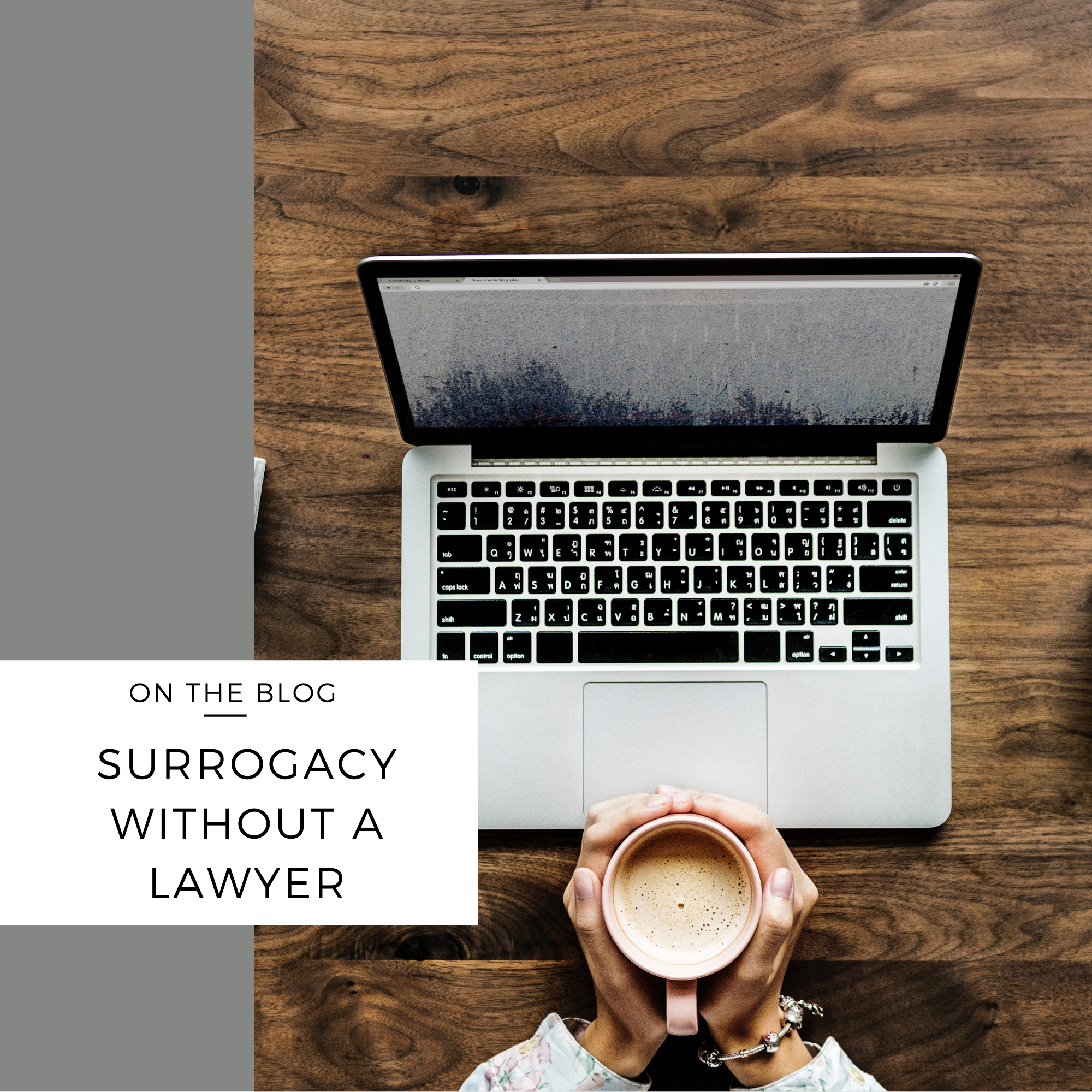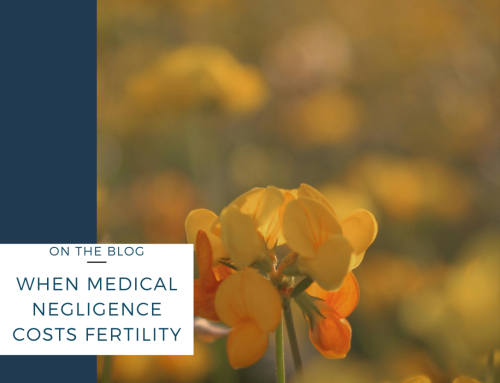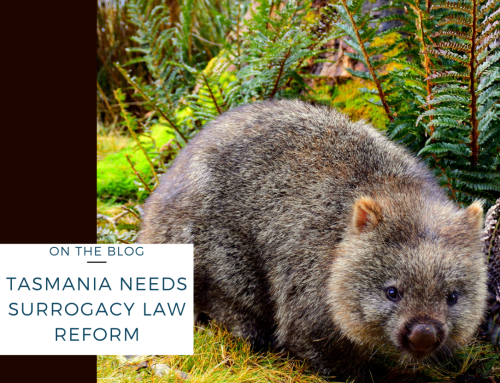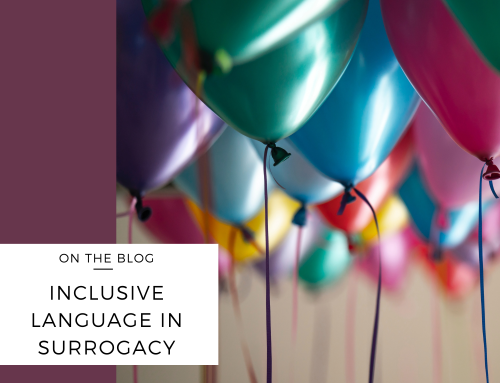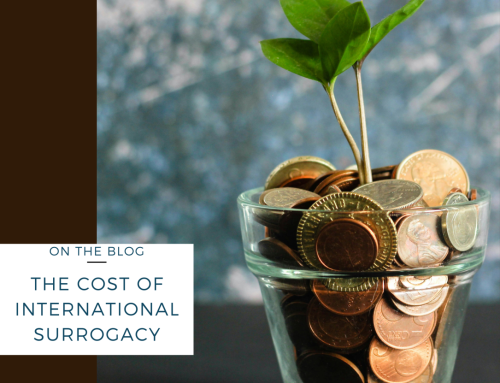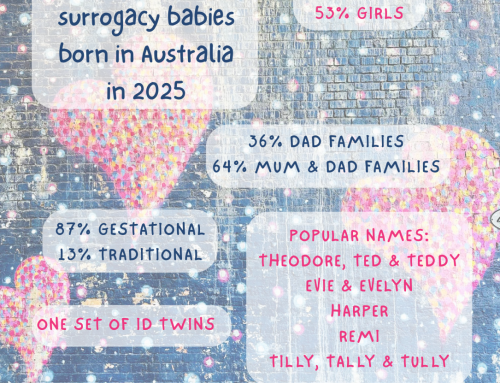Surrogacy without a lawyer – can we do it?
The surrogacy laws and other laws surrounding children, adoption and parentage are complex. There are laws that cover children, and the Family Law Act dedicates almost 200 pages to children’s issues. There’s also many cases that give us some insight into how the Courts view issues of parentage and surrogacy, and what is to be considered when deciding what is in a child’s best interests.
Surrogacy without a lawyer, and without the parties obtaining legal advice, is not surrogacy.
People often ask why they need to involve lawyers in their surrogacy arrangement. It’s a good question, given that surrogacy agreements, even if they are in writing, are not enforceable. While making a baby is an emotional, human, and sometimes medical process, surrogacy is much more complex and involves a legal process. Transferring parentage from birth parents to intended parents is not a simple matter of a private agreement. In cases where the parties decide to make a baby and hand it over to other people to raise, there is a risk that it can be seen as an informal adoption (at best) and as human trafficking (at worst).
You can read a broad overview for surrogacy in Australia and how it works.
Sometimes, a woman will offer to be a surrogate for people she met online, and to do it cheap and easy without involving lawyers. The question must be asked – what is her motivation for avoiding the counselling and the legal process? If she is looking for ‘cheap’ or ‘easy,’ her motivations may not be genuine, and intended parents take significant risks in progressing with the arrangement. I would encourage anyone pursuing an arrangement that is ‘off-grid’ and avoiding lawyers and counsellors to follow their gut, understand the risks at stake, and consider the story you will tell your future child about their conception. If there are red flags flying, it is best to back away.
A genuine surrogacy arrangement follows a similar process in each State. There are criteria that you need to meet, regardless of who is involved in the arrangement or whether it’s gestational or traditional surrogacy. The surrogacy arrangement must be a pre-conception arrangement – calling it a surrogacy arrangement after conception doesn’t make it surrogacy. The parties need to participate in pre-conception counselling and obtain legal advice. In most states, there needs to be a pre-conception written agreement.
For gestational surrogacy, an IVF clinic will not proceed with the arrangement unless you have provided them with evidence that you have received legal advice and counselling.
So, what are the consequences of not following the process of a legal surrogacy arrangement? I’ve had a few cases which do not tick the boxes, and there are a number of consequences you should consider:
- The intended parents may not be able to apply for a Parentage Order, transferring parentage from the birth parents to themselves. This means that the legal parents of the child will always by the birth parents.
. - The Birth Certificate cannot be changed. The birth mother will remain on the child’s birth certificate. Only a Parentage Order can provide for the change of birth certificate. Unless the criteria of a surrogacy arrangement are met, the Birth Certificate cannot be changed.
. - Not having a Birth Certificate which lists the intended parents child can lead to problems with Centrelink, Medicare, overseas travel, passports and enrolling the child in childcare and school. The intended parents may need to rely on the birth parents to sign any documents they need to exercise parental responsibility for the child. There also risks that the legal parents – those named on the birth certificate – will be liable for child support payments. This can also have consequences for estate planning (ie. what happens to your estate after your death).
. - While the intention of the parties might be to save money on lawyers (and counsellors) the end result will likely be more expense on lawyers and legal processes. If the intended parents wish, or are forced to obtain formal parental responsibility (which is sometimes referred to as ‘custody’), then the legal process for such an Order would be much more expensive than if the parties had done the surrogacy legals before conception. The timeframe too, for obtaining Parenting Orders (as opposed to Parentage Orders, which are relatively easy) can be many months and involve several court hearings.
. - There are risks that the child protection authorities may become involved with the family, and scrutinise why a child is being raised away from their birth family. This is a very real risk, and I have seen this occur in several cases. The child protection authorities must ensure that children are safe and protected – if it comes to their attention that the birth parents are leaving their child with another family, it can look like abandonment, or neglect, and worthy of investigation. Unless there is a pre-conception surrogacy arrangement in place, the child protection authorities have the power to be involved in the family.
. - The Courts can take a very dim view of an arrangement that involves parties giving a child to others without involving a formal legal process. A surrogacy arrangement is dealt with in the State courts, and as long as the parties have satisfied the criteria for a Parentage Order, it will be made and the Birth Certificate changed. The court hearing (where there is one) is ceremonial and celebratory, and the Judge commends the parties on their love and commitment to the child. Where an arrangement has not followed the proper processes, the Family Court may become involved and it does not view those arrangements in the same light. Questions will be asked about whether the arrangement is in the child’s best interests. The arrangement will be scrutinised not as an arrangement of love between the parties, but as one Judge said in a case I was involved in – ‘the commodification of women and children.’ Questions will be asked as to whether there was an exchange of money between the parties.
You might be thinking that engaging in an informal surrogacy arrangement, without lawyers and counsellors, is an easier option. After all, you all trust each other, right? But the laws are not there to make life difficult for you. They are primarily there to protect the rights of children, to ensure that women are not exploited, and to protect all the parties involved. And whilst there might be a lot of love and trust between the parties (or maybe it’s just a woman on the internet promising you the world), the courts are full of people who once had loving and trusting relationships, arguing over what is in their child’s best interests.
I interviewed Anne (not her real name) for the Podcast about her story of becoming a mother through an arrangement that did not involve pre-conception counselling and legal advice. Her story serves as a cautionary tale for why the processes are so important.
My advice is that having a lawyer involved in your arrangement – for surrogacy, adoption, co-parenting or donor arrangement, is worth the investment. Family law is still evolving, and each situation requires a unique approach. Investing in getting the right advice – before conception – is worth it at least to know that your future child will thank you for not cutting corners.
If you are new to surrogacy, you can read about how to find a surrogate, or how to become a surrogate yourself. You can also download the free Surrogacy Handbook which explains the processes and options.
Looking for a surrogate and not sure where to start? We Need a Surrogate – What’s Next? And if you have a surrogate or intended parents, you can get started on the surrogacy process.
Sarah has written a book, More Than Just a Baby: A Guide to Surrogacy for Intended Parents and Surrogates, which is the only guide to surrogacy in Australia.
You can find more information in the free Surrogacy Handbook, reading articles in the Blog, by listening to more episodes of the Surrogacy Podcast. You can also book in for a consult with me below, and check out the legal services I provide.

